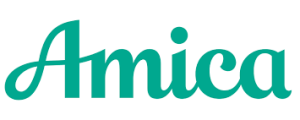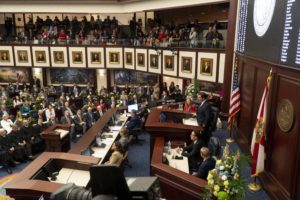Governor’s premium rate relief uncertain
 Two property insurance companies have filed for rate increases of more than 50% on their Florida policies, legislative leaders say they’re still considering the Governor’s proposal for homeowners insurance premium relief, and a new report says it’s not really any weather changes that’s leading to higher insurance losses. It’s all in this week’s Property Insurance News.
Two property insurance companies have filed for rate increases of more than 50% on their Florida policies, legislative leaders say they’re still considering the Governor’s proposal for homeowners insurance premium relief, and a new report says it’s not really any weather changes that’s leading to higher insurance losses. It’s all in this week’s Property Insurance News.
 Rate Hikes: Florida’s seventh-largest writer of homeowners insurance policies is seeking a statewide average rate increase of 53.5% for its Homeowners Multi-Peril for Condo Owners (HO-6) policies. Castle Key Indemnity Company, part of Illinois-based Allstate Insurance, had nearly 259,000 policies in force as of September 2023. The use-and-file submission request is for new and renewal business effective May 14, 2023. The Florida Office of Insurance Regulation has set a public hearing for February 21 at 2pm. It was 11 months ago that the company submitted a similar rate increase on its remaining condominium policies, following its announcement in 2022 to stop writing new condo policies in the state.
Rate Hikes: Florida’s seventh-largest writer of homeowners insurance policies is seeking a statewide average rate increase of 53.5% for its Homeowners Multi-Peril for Condo Owners (HO-6) policies. Castle Key Indemnity Company, part of Illinois-based Allstate Insurance, had nearly 259,000 policies in force as of September 2023. The use-and-file submission request is for new and renewal business effective May 14, 2023. The Florida Office of Insurance Regulation has set a public hearing for February 21 at 2pm. It was 11 months ago that the company submitted a similar rate increase on its remaining condominium policies, following its announcement in 2022 to stop writing new condo policies in the state.
 Amica Mutual Insurance Company is seeking a statewide average rate increase of 54.1% for its Florida Dwelling Fire policies for new and renewal business effective July 1, 2023 under a file-and-use submission. It’s public hearing is February 20 at 10am. The Rhode Island-based property insurance company had 17,567 personal residential policies in force here as of September 2023. AM Best revised the company’s outlook from stable to negative earlier this month, while affirming its Financial Strength Rating of A+.
Amica Mutual Insurance Company is seeking a statewide average rate increase of 54.1% for its Florida Dwelling Fire policies for new and renewal business effective July 1, 2023 under a file-and-use submission. It’s public hearing is February 20 at 10am. The Rhode Island-based property insurance company had 17,567 personal residential policies in force here as of September 2023. AM Best revised the company’s outlook from stable to negative earlier this month, while affirming its Financial Strength Rating of A+.

Premium Relief: The jury is still out as to whether the legislature supports the Governor’s proposal to waive for one year the insurance premium tax and to pay a portion of the Florida Insurance Guaranty Association (FIGA) deficit from state coffers. The total of these two combined is about $400 million in consumer savings and that is a similar to the figure the Florida Realtors are seeking in reducing the sales tax on commercial leases. It appears the legislature is thinking that allocating the $400 million savings in business rent tax reduction might be more beneficial than reducing property insurance premiums for Floridians but that is strictly my observation of the budget discussions. In the words of one budget expert, “we can’t do both.” We are closely following this issue and will report back.
 Rising Risk: The frequency and severity of costly natural catastrophes continues to rise but a new report by Gallagher Re says the associated rising insurance costs are from greater exposure values in affected geographic areas and not significant meteorological shifts. Its 2023 Natural Catastrophe and Climate Report puts global insured losses from natural catastrophes at an estimated $123 billion in 2023 – the fourth year in a row losses have topped $100 billion. The report identifies two major factors in those increased costs: more people living in areas prone to severe convective storms and higher repair costs driven by inflation, especially in older homes.
Rising Risk: The frequency and severity of costly natural catastrophes continues to rise but a new report by Gallagher Re says the associated rising insurance costs are from greater exposure values in affected geographic areas and not significant meteorological shifts. Its 2023 Natural Catastrophe and Climate Report puts global insured losses from natural catastrophes at an estimated $123 billion in 2023 – the fourth year in a row losses have topped $100 billion. The report identifies two major factors in those increased costs: more people living in areas prone to severe convective storms and higher repair costs driven by inflation, especially in older homes.
In other news…I was honored to be a part of the University of Connecticut School of Law’s Insurance Law Center “New Ideas in Insurance” webinar series; the one this past Thursday was titled “Oh, Florida!” You can bet we covered a lot of the topics that we do right here in the LMA Newsletter on the challenges in Florida’s homeowners insurance market. I was joined by Florida State University insurance professor Patricia Born and Peter Molk of the University of Florida Levin College of Law. It was a lively discussion among academics and practitioners like me about market problems and solutions. The webinars are conducted every two weeks or so.

